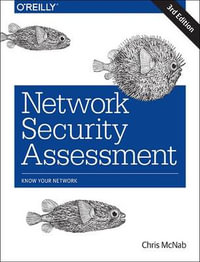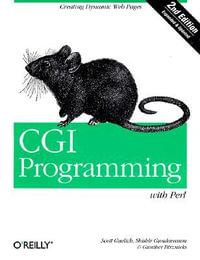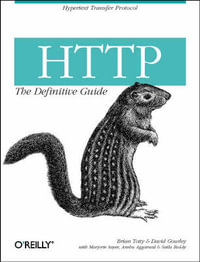The hacking industry costs corporations, governments and individuals millions of dollars each year. While the media focuses on the grand-scale attacks that have been planned for months and executed by teams and countries, there are thousands more that aren't broadcast. Low Tech Hacking focuses on the everyday hacks that, while simple in nature, actually add up to the most significant losses. Attackers are using common techniques like social engineering, wireless hacking, and targeting and surveillance to gain access to valuable data. This book contains detailed descriptions of potential threats and vulnerabilities, many of which the majority of the information systems world may be unaware. Author Jack Wiles spent many years as an inside penetration testing team leader, proving that these threats and vulnerabilities exist and that their countermeasures work. He retired from his pen testing days UNDETECTED!
- Contains insider knowledge of what could be your most likely Low Tech threat
- Includes timely advice from some of the top security minds in the world
- Covers many detailed countermeasures that you can employ to improve your security posture
About the Author
Jack Wiles, (PPS, IAM, IEM) is a Security Professional with over 30 years of experience in security-related fields, including both physical and technical security. He is a professional member of the National Speakers Association and has trained hundreds of federal agents and senior security specialists on a number of computer crime-related topics. Jack is a co-founder and President of TheTrainingCo., producers of the Annual Techno Security Conferences, Techno Forensics conferences, and the popular Mobile Forensics Conferences. He is also a Vietnam veteran who served with the 101st Airborne Division where he was awarded 2 Bronze Stars for his actions in combat.
Terry Gudaitis, Ph.D., is the CyberIntelligence Director at Cyveillance. Terry gained a foundation for her expertise as an operations officer and behavioral profiler at the CIA's Counter Terrorist Center. At CIA, she was responsible for developing terrorist profiles, assessments of informants, and managing targeting teams. In addition to her corporate-related work, Terry has served on the United States Secret Service Advisory Board for Insider Threat, regularly presents at national and international conferences, and has authored publications in numerous security-related journals and books.
Jennifer Jabbusch, CISSP, CISO, network security engineer and consultant with Carolina Advanced Digital, Inc., has more than 15 years' experience in the technology industry.
Russ Rogers (CISSP, CISM, IAM, IEM, Hon. Sc.D.) is currently a penetration tester for a federal agency and the Co-Founder and Chief Executive Officer of Peak Security, Inc. Russ has been involved in Information Technology since 1980 and has spent the last 20 years working as both an IT and InfoSec consultant. Russ is a globally-renowned security expert, speaker and author who has presented at conferences around the world. He has been a hacker in the community for decades, and on staff as an organizer of DEF CON for the past 14 years.
Industry Reviews
"In Low Tech Hacking: Street Smarts for Security Professionals, the authors, all information security veterans, bring their collective experience to the printed word and show how low-tech hacks can be just as devastating as a large-scale directed attack.Overall, [it] is a value reference for security professionals to use to ensure they are securing their networks adequately, to fend off the average attacker.The authors have written a book that is light on theory, but heavy on actionable things the reader can quickly do to secure their network. And that is a very good thing."--Security Management, February 2013 and other publications "In the age of extreme technology, the defenders have made Low Tech a low priority, concentrating more on the common high tech solutions intended to protect organizations. But attackers are resurrecting the art of Low Tech Hacking. The techniques discussed in this book are given new life because they allow attackers to strike at the weakest links: human and physical. This book is the right tool to bring the Low Tech back into focus."--Greg Miles, Ph.D., CISSP, CISA, Principal at Peak Security, Inc. "Low Tech Hacking is perfect for waking people up to the dangers that lurk on the Internet and especially in their physical environment. All chapters are littered with helpful tips and warnings, which more often then not include the authors' 'war stories' as illustrative examples. And even though the book has been written by five different authors, they all do a great job at keeping the explanations and examples clear and concise, and at making us think for ourselves and consider things we never marked before. In short, I would effectively recommend this book to everyone."--Net-Security.org "While the media focuses on grand-scale hacking, companies are losing money every day from simpler hacking techniques. This book, by Jack Wiles, Terry Gudaitis, Jennifer Jabusch, Russ Rogers and Sean Lowther, details less sophisticated hacking techniques, such as social engineering, wireless hacking, and surveillance to gain valuable data, and offers countermeasures."--iWeek Magazine.com "All in all, Low Tech Hacking is a great overview of unconventional offensive and defensive methods to secure an organization. It will not make testers experts on physical security or wireless attacks all of a sudden, but it is a lively and useful starting point for further reading and training and a handy reference during an audit, too."--Computers and Security 31 {2012} 738
























